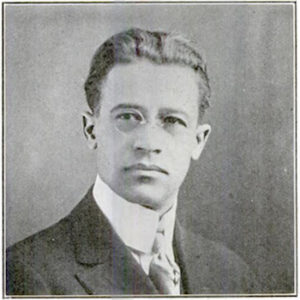
William T. Francis
On his date, we mark the birth of William T. Francis in 1869. He was a Black politician and lawyer.
Francis was born in Indiana and went to Minnesota at an early age. After completing his education, he served in the Northern Pacific Railroad legal department. In 1883, he married Nellie F. Griswold. Originally from Nashville, They shared a commitment to gender, racial and social progress, and talent for singing and acting. They formed a strong partnership in life and politics and often performed together. Francis left Northern Pacific to take over the solo law firm of his friend and mentor, Frederick McGhee, after his 1912 death.
In 1920, he was president-elect at the Republican State Convention. Francis and his wife were instrumental in getting an anti-lynching law passed in the Minnesota State Senate in the 1920s after a brutal lynching episode in Duluth that summer. Francis supported his wife in passing the bill in the Minnesota legislature in 1921, but the principal credit is hers. There was still no Federal anti-lynching law at that time.
Francis and his wife helped earn women the right to vote, and she successfully lobbied through a bill against racial discrimination in hairdressing schools. His deep concern about the fate of his people is summed up in these words: “The solution of the whole problem…is simple justice; a recognition of the fact that the rights of the humblest citizen are as worthy of protection as those of the highest.”
In 1927, he was appointed U.S. Minister to Liberia, Africa, by President Calvin Coolidge. Two years later, William Francis died there in 1929 of yellow fever. He and his wife (who died in 1969) are buried in Nashville's Greenwood Cemetery.